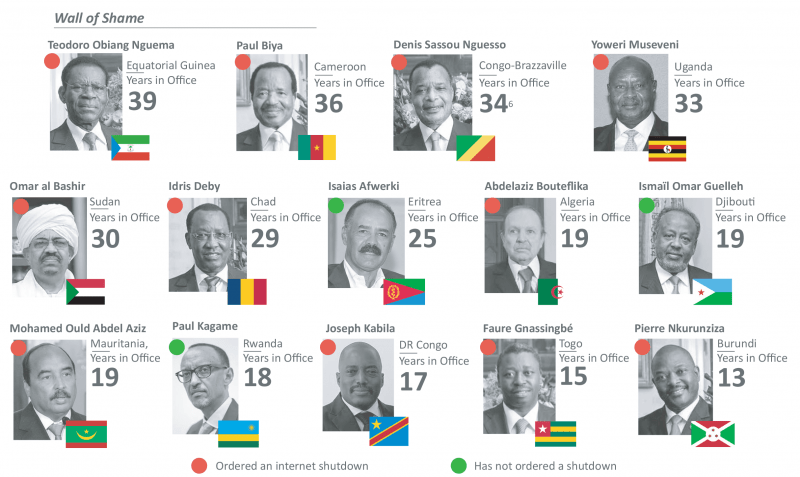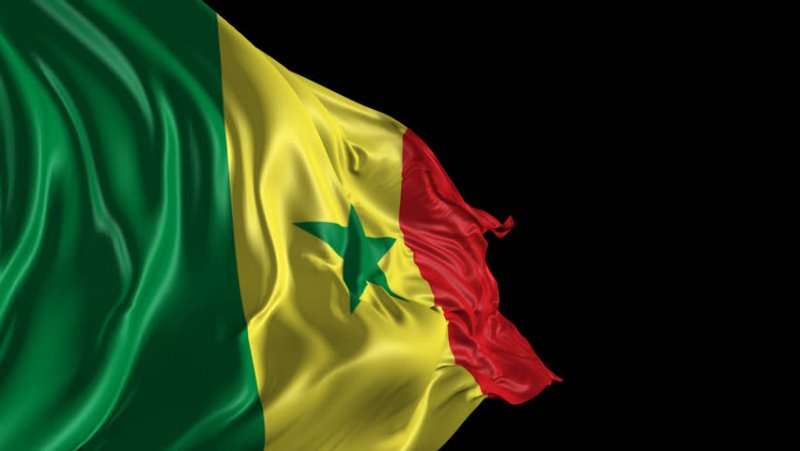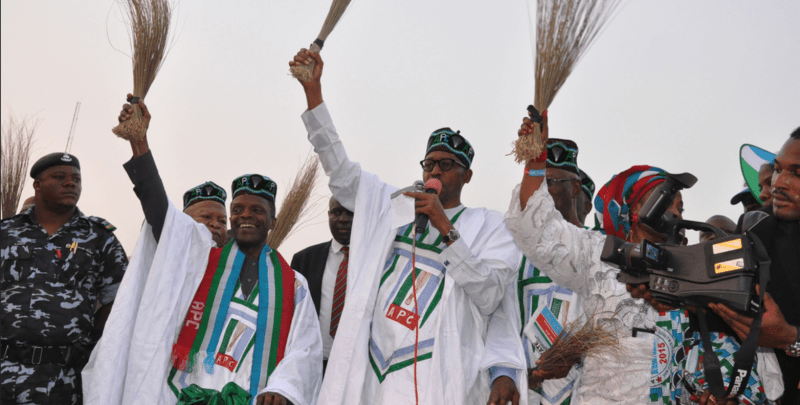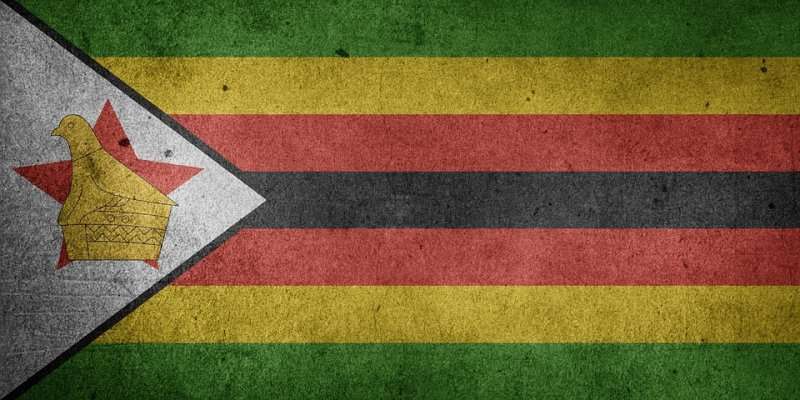Report |
Up to 22 African governments have ordered network disruptions in the last four years and since the start of 2019, six African countries – Algeria, the Democratic Republic of Congo (DR Congo), Chad, Gabon, Sudan and Zimbabwe – have experienced internet shutdowns.
A new report by the Collaboration on International ICT Policy for East and Southern Africa (CIPESA) titled Despots and Disruptions: Five Dimensions of Internet Shutdowns in Africa notes, however, that internet shutdowns remain the preserve of Africa’s most despotic states.
 According to the report, 77% of the countries where internet shutdowns have been ordered in the last five years are categorised as authoritarian under the Democracy Index produced by the Economist Intelligence Unit. All the other African countries that have disrupted communications are categorised as hybrid regimes, meaning they have some elements of democracy with strong doses of authoritarianism.
According to the report, 77% of the countries where internet shutdowns have been ordered in the last five years are categorised as authoritarian under the Democracy Index produced by the Economist Intelligence Unit. All the other African countries that have disrupted communications are categorised as hybrid regimes, meaning they have some elements of democracy with strong doses of authoritarianism.
The authoritarian regimes that have ordered network disruptions include Algeria, Burundi, the Central African Republic (CAR), Cameroon, Chad, DR Congo, Congo (Brazzaville), Egypt, Equatorial Guinea, Gabon, Ethiopia, Libya, Mauritania, Niger, Togo, Sudan, and Zimbabwe. Hybrid regimes that have ordered internet shutdowns include the Gambia, Mali, Morocco, Sierra Leone, and Uganda.
For countries that are classified as authoritarian but have not ordered shutdowns, the report states that it is likely that “the authoritarian state is so brutal or commanding that civil society or opposition organising and protests – online and offline – are unfathomable” or “internet control measures in place render ordering overt internet disruptions unnecessary.” These countries include Djibouti, Eritrea and Rwanda.
The report also notes that countries whose leaders have been in power for several years are more likely to order internet shutdowns. As of January 2019, of the 14 African leaders who had been in power for 13 years or more, 79% had ordered shutdowns, mostly during election periods and public protests against government policies.
These included Equatorial Guinea’s Teodoro Obiang Nguema (39 years); Cameroon’s Paul Biya (36); Congo Brazaville’s Denis Sassou Nguesso (34); Uganda’s Yoweri Museveni (33); Sudan’s Omar El Bashir (30); Chad’s Edris Deby (29); Algeria’s Abdelaziz Bouteflika (19); Mauritania’s Mohamed Ould Abdel Aziz (19); DR Congo’s Joseph Kabila (17); Togo’s Faure Gnassingbé (15); and Burundi’s Pierrie Nkurunziza (13).

The report says 2019 could see a record number of network disruptions since at least 20 African states will hold various forms of elections including local, legislative, general or presidential.
Over the years, many network disruptions have typically occurred in autocratic African countries around election times, and among the states scheduled to conduct polls this year are those which have previously initiated various forms of shutdowns during elections periods (such as Equatorial Guinea), public protests (Cameroon, Togo), and national school exams (Algeria, Ethiopia).
Other highlights from the Despots and Disruptions: Five Dimensions of Internet Shutdowns in Africa report:
The report notes that governments that order disruptions and the Internet Service Providers (ISPs) that implement them now more openly acknowledged the disruptions. Governments often cite digital technologies’ increasing usage to spread disinformation, propagate hate speech, and to allegedly fan public disorder and undermine national security.
For their part, more ISPs and platform operators are making public their responses to shutdown directives as and to user information and interception requests from governments through transparency reports. This openness could represent the normalisation of shutdowns, implying that a growing number of governments feel no shame in openly acknowledging ordering shutdowns. However, it has positive elements too, as it can be the basis of litigation and push back advocacy.
The report reiterates that internet disruptions, however short-lived, affect many facets of the national economy and tend to persist far beyond the days on which access is disrupted. “If just five of the countries that have previously disrupted internet access and who are going to the polls this year disrupted access to internet including apps such as Twitter, Facebook and Whatsapp at a nationwide level for five days each, the estimated economic cost would be more than USD 65.6 million,” the report states.
Further, the report notes that the countries that disrupt internet access have some of the lowest internet usage figures and highest data prices in Africa. Conventional wisdom might suggest that low-internet usage countries would be the last to disrupt internet access as they might consider the population online too small to threaten “public order” or “national security” or to threaten the regime’s hold on power. On the contrary, says the report, it appears that African governments with democracy deficits, regardless of the numbers of their citizens that use the internet, fear the power of the internet in enabling citizen organising and empowering ordinary people to speak truth to power.
The report can be downloaded here.
Déclaration conjointe pour le maintien d’un internet ouvert et sécurisé durant l’élection présidentielle du 24 Février 2019 au Sénégal
#KeepItOn |
Nous, la coalition pour un Internet libre et ouvert:
Réaffirmons que l’internet ouvert, accessible et sécurisé, en particulier durant les élections, facilite la libre circulation et l’accès à l’information, en plus de favoriser la liberté d’expression en ligne et hors ligne.
Nos organisations sont préoccupées par la récente tendance d’interférences illégitimes dans les communications en ligne, la déclaration menaçante d’agents publics et des services de sécurité, ainsi que la ratification d’un projet de loi imparfait sur les communications électroniques datant de 2018, peuvent être considérées comme une tentative majeure de faire taire les voix critiques en ligne et de limiter ainsi la liberté d’expression. Le contrôle excessif des médias publics, l’influence et la pression indirecte exercée par le gouvernement en place et ses alliés sur de nombreux médias traditionnels, ainsi que les récents actes de violence à l’encontre de journalistes sont problématiques et affaiblissent le processus démocratique au Sénégal
Nous demandons d’urgence à toutes les parties prenantes d’assurer la stabilité et l’accessibilité d’internet avant, pendant et après la prochaine élection présidentielle du 24 Février 2019 au Sénégal. Au nom des plus de 170 organisations provenant de plus de 60 pays qui forment la coalition #KeepitOn, nous vous implorons de garder l’internet ouvert.
Les coupures d’internet heurtent les droits humains et l’économie
Les recherches montrent que les coupures de courant sur le web et la violence vont de pair. [1], [2] Les coupures perturbent la libre circulation de l’information et créent un masque obscur qui protège les violations des droits de l’homme de tout contrôle public. En particulier durant les élections, les journalistes et les professionnels des médias ne peuvent pas contacter des sources, rassembler des informations ou archiver des articles sans outils de communication numériques [3]. Les citoyens n’ont pas accès aux informations critiques, notamment concernant les bureaux de vote et les résultats des élections. Justifiées par diverses raisons, les interruptions du web coupent l’accès à des informations vitales, au commerce électronique et aux services d’urgence, plongeant des communautés entières dans la peur. Les perturbations déstabilisent également la capacité d’internet à soutenir les petites entreprises et à stimuler le développement économique. Une étude réalisée en 2016 par la Brookings Institution, un groupe de recherche de premier plan, a révélé que les coupures d’internet avaient drainé 2,4 milliards de dollars de l’économie mondiale entre 2015 et 2016 [4].
Un internet ouvert favorise la créativité, l’innovation, l’accès à l’information et à des opportunités sociales, économiques, culturelles et politiques à travers le monde, comme aucun outil ne l’a fait auparavant. Les moyens techniques utilisés pour bloquer l’accès à l’information en ligne compromettent souvent de manière dangereuse la stabilité et la résilience d’internet. Les coupures d’internet ne doivent jamais devenir une normalité.
Au Sénégal, l’extension de l’accès à l’internet global demeure un facteur clé pour la réduction des fractures numériques et pour la concrétisation des engagements du Gouvernement envers sa stratégie Sénégal numérique 2016-2025 et les Objectifs De Développement durable (SDG). Nous estimons que les coupures d’internet coûteront au Sénégal près de 3 400 000 $ US environ en CFA 1 870 000 000 par jour en coûts économiques directs, en plus de ralentir la réalisation des droits économiques, sociaux et culturels dans son ensemble. [5]
Les coupures d’internet violent la loi internationale
Un nombre croissant de constatations et de conclusions indiquent que des perturbations intentionnelles de l’internet constituent une violation du droit international. Le Conseil des droits de l’homme des Nations Unies et l’Assemblée générale des Nations Unies ont adopté par consensus de nombreuses résolutions condamnant sans ambiguïté les coupures d’internet et les restrictions similaires à la liberté d’expression en ligne. Par exemple, le Conseil des droits de l’homme des Nations Unies dans sa résolution A/HRC/RES/32/13:
Condamne sans équivoque les mesures visant à empêcher ou à perturber intentionnellement l’accès ou la diffusion d’information en ligne, en violation des Droits humains protégés internationalement, et appelle tous les États à s’abstenir et cesser d’utiliser de telles pratiques.
Des experts des Nations Unies, de l’Organisation pour la sécurité et la coopération en Europe (OSCE), de l’Organisation des États américains (OEA) et de la Commission Africaine des Droits de l’Homme et des Peuples (CADHP) ont déclaré qu’une coupure d’internet ne peut jamais être justifiée sous le droit international relatif aux droits de l’homme, même en période de conflit. [6]
En novembre 2016, la Commission Africaine Des droits de l’ Hommes et des Peuples (CADHP) a adopté une résolution sur le droit à la liberté d’information et d’expression pour l’internet en Afrique, exprimant sa préoccupation face à «une pratique émergente des États d’interrompre ou de limiter l’accès aux services de télécommunication tels qu’internet, les médias sociaux et les services de messagerie, pratique de plus en plus courante durant les élections.» CADHP/Rés.362 (LIX).
Le Comité des droits de l’homme des Nations Unies, interprète officiel du Pacte international relatif aux droits civils et politiques, souligne dans l’Observation générale no. 34 que les restrictions sur le discours en ligne doivent être strictement nécessaires et proportionnées pour atteindre un objectif légitime. [7] Les coupures, en revanche, ont un impact disproportionné sur tous les utilisateurs et limitent inutilement l’accès à l’information et aux communications des services d’urgence lors de moments cruciaux. Les arrêts d’internet ne sont ni nécessaires ni efficaces pour atteindre un objectif légitime, car ils bloquent la diffusion d’informations, contribuent à la confusion et au désordre, en plus d’entraver la sécurité publique.
Nous vous demandons respectueusement d’utiliser votre position d’influence afin de:
- Veiller à ce que l’internet, y compris les médias sociaux, demeure actif et accessible ;
- Déclarer publiquement votre engagement à conserver l’internet ouvert et à informer le public de toute perturbation ;
- Encourager les fournisseurs de services de télécommunication et d’internet à respecter les droits humains par la divulgation publique de politiques et de pratiques affectant les utilisateurs ;
- Veiller au respect des directives de la déclaration Africaine des Droits et Libertés de l’Internet ;
Veiller au respect des directives sur l’Accès à l’Information et les Élections en Afrique.
Fait à Dakar, 19 février 2019
Access Now
African Development Solution Lab-Experts ( ADSL-E)
African Freedom of Expression Exchange (AFEX)
AFRICTIVISTES
Alioune NDIAYE – Presidentrzd
Alliance for Affordable Internet – A4AI
APPEL
ARTICLE 19 Afrique de l’Est
ARTICLE 19 Sénégal Afrique de l’Ouest
Assane DIENG Etudiant – Chercheur
Association for Progressive Communications (APC)
ASUTIC
Bacary Domingo MANE – Journaliste
Balkissa Idé Siddo
Collaboration on International ICT Policy for East and Southern Africa (CIPESA)
Collectif Sassoufit
Committee to Protect Journalists (CPJ)
CONGAD
Directeur de Pub www. Sene24.com
Emmanuelle M. FAYE – Journaliste Enquête
FORUM CIVIL
Forum for African Women Educationalists FORUM CIVIL
Human Rights Centre Somaliland
Ibra Seck CASSIS – Senegal Vote
Ibrahima NDOYE – Directeur de Pub www. Sene24.com
Internet Sans Frontières
Jeune Chambre Internationale
LSDH APPEL
Magueye SOW – Atlas Network
Media Foundation for West Africa
Modibo DIOP – Euratrade SA
Moussa Fara DIOP – Jeune Chambre Internationale
Moussa TALL – AIESEC
NetBlocks
OpenNet Africa
Oumy Régina SAMBOU – Journaliste
Paradigm Initiative
PEN America
RADDHO
Right 2 Know Campaign, South Africa
The PACT ( Projet pour une alternance crédible au Tchad )
Unwanted Witness, Uganda
World Wide Web Foundation
#KeepItOn: Nigeria Urged to Ensure Online Communications Remain Accessible During Elections
By Juliet Nanfuka |
The Collaboration on International ICT Policy in East and Southern Africa (CIPESA) has joined the #KeepItOn coalition in urging the Nigerian Authorities to ensure that access to digital communications remains open before, during and after the elections which take place on February 16, 2019.
The call implores the state to reaffirm its commitment to keep the internet during this critical political time. It also notes that a shutdown down could cost the country an estimated $134,251,654 per day in direct economic costs, and impact on the realization of economic, social, and cultural rights broadly.
Disruptions to online communications contribute to economic impacts which persist far beyond the days in which access is disrupted due to systemic effects which harm efficiency throughout the economy. Internet shutdowns, however short-lived, undermine economic growth, and erode business confidence as global and national perceptions on the offending country are also affected.
Framework for Calculating the Economic Impact of Internet Shutdowns in Sub-Sahara Africa
Meanwhile, concerns of a shutdown have remained among citizens, leading to information being shared on how to stay online in the event of a network disruption.
Increasingly, disruptions to communications have occurred around election times and during public protest often related to the political regime. Among some of the cases include Equatorial Guinea which in November 2016 blocked access to the internet and to opposition websites ahead of a nationwide election; Uganda also in 2016, blocked access to social media sites and mobile money transactions on two occasions due to election related events; while that same year, Gabon blocked social media access and also imposed a curfew on internet access following widespread conflicts disputed presidential election results. Last year, Togo interrupted communication following public protests against President Gnassingbe, whose family has ruled the country for over half a century. At the start of this year, DR Congo blocked access to “preserve public order after ‘fictitious results’ started circulating on social media.”
See the joint letter on keeping the internet open and secure here.
CIPESA and OpenNet Africa Join Public Call Against Internet Shutdown in Zimbabwe
By Juliet Nanfuka |
Zimbabwe has experienced a shutdown of social media platforms and major websites as of January 15, 2019 following public protests against a 150% increase in fuel prices. The protests have resulted in the death of at least eight people and arrest of up to 200 others. The disruptions to online communications were reported on social media and also confirmed by network measurements conducted by Netblocks.
Confirmed: Multiple internet shutdowns in #Zimbabwe amid fuel protests:
➡️ #Bulawayo largely offline from 7:00AM UTC now extending to #Harare
➡️ Evidence of extensive social media/website restrictions
➡️ Ongoing incident#ZimbabweShutdown #KeepItOnhttps://t.co/svNQeLresu pic.twitter.com/1TxMJFbJC0— NetBlocks (@netblocks) January 15, 2019
The Collaboration on International ICT Policy for East and Southern Africa (CIPESA) and its internet freedoms initiative OpenNet Africa have joined over 20 civil society organisations in calling for the restoration of internet access in the country. A letter sent to Kazembe Kazembe, the Minister of Information Communication Technology and Cyber Security, implores the government to “ensure the stability and openness of the internet in Zimbabwe.” The letter was delivered as part of the #KeepItOn coalition, which represents more than 175 organisations in 60 countries.
As at time of writing, no statement on the shut down had been released by the government, telecommunications companies, or the Postal and Telecommunications Regulatory Authority of Zimbabwe (POTRAZ).
The shutdown is doing little to alleviate the economic crisis in Zimbabwe. Projections show that the country can lose at least USD 5.7 million per day in direct economic costs, according to estimates using the COST tool by NetBlocks and the Internet Society. The tool references a framework for calculating the economic impact of shutdowns developed by CIPESA.
Further, the economic impact of the shutdown is likely to persist far beyond the days in which access is disrupted due to systemic effects which harm efficiency throughout the economy. Internet shutdowns, however short-lived, undermine economic growth, and erode business confidence as global and national perceptions on the offending country are also affected.
The joint letter notes that the UN Human Rights Committee, the official interpreter of the International Covenant on Civil and Political Rights (ICCPR), emphasises in General Comment no. 34 that restrictions on speech online must be strictly necessary and proportionate to achieve a legitimate purpose. Shutdowns, by contrast, disproportionately impact all users, and unnecessarily restrict access to information and emergency services during crucial moments. Shutdowns are neither necessary to, nor effective at, achieving a legitimate aim, as they often spread confusion and encourage more people to join public demonstrations.
CIPESA research recommends that governments should desist from ordering shutdowns because they have a high economic impact at micro and macro levels, adversely affecting the livelihoods of citizens, undermining the profitability of business enterprises, and reducing the Gross Domestic Product (GDP) and competitiveness of countries that implement them. This is also why CIPESA is part of the global campaign #ForTheWeb aimed to get governments, companies and the public to stand up for a free, open and fair web that works for everyone, everywhere.
See the joint letter here.
NetBlocks and the Internet Society Launch Tool to Calculate the Cost of Internet Censorship Worldwide
News Update |
A new tool to support internet freedom is being launched by NetBlocks and the Internet Society, a global non-profit organisation dedicated to the open development, use and evolution of the Internet.
Launch COSTRun the Cost of Shutdown Tool
The organisations have partnered up to build COST, a tool that seeks to measure the economic cost of internet disruptions to support the adoption of rights-based internet governance around the world.
The internet is for everyone: This #HumanRightsDay we're launching the #COST tool with @InternetSociety to measure in real-time the economic impact of internet disruptions, throttling and mass-censorship worldwide. Together we can #KeepItOnhttps://t.co/m4jvx3QLLZ pic.twitter.com/1daGvRXgfb
— NetBlocks (@netblocks) December 10, 2018
The Cost of Shutdown Tool (COST) launches today to mark the 70th Anniversary of the adoption of the Universal Declaration of Human Rights enacted by the United Nations on December 10, 1948.
COST is a data-driven policy tool that automates the task of assessing the economic impact of internet shutdowns, mobile data blackouts and social media restrictions including throttling.
COST performs calculations by country, type of disruption and length of time, combining thousands of development indicators in real time to offer insights into the impact of internet governance and misgovernance on sustainable development, human rights and digital prosperity.
“This tool will empower the next stage of data-driven advocacy. By calculating numbers in real time, COST will allows us to communicate to governments and technology companies on how much revenue they’re losing when they disrupt the internet. We hope by the tool will make governments think twice before threatening internet freedom, ” Hannah Machlin, Global Advocacy Manager for the NetBlocks Group, said.
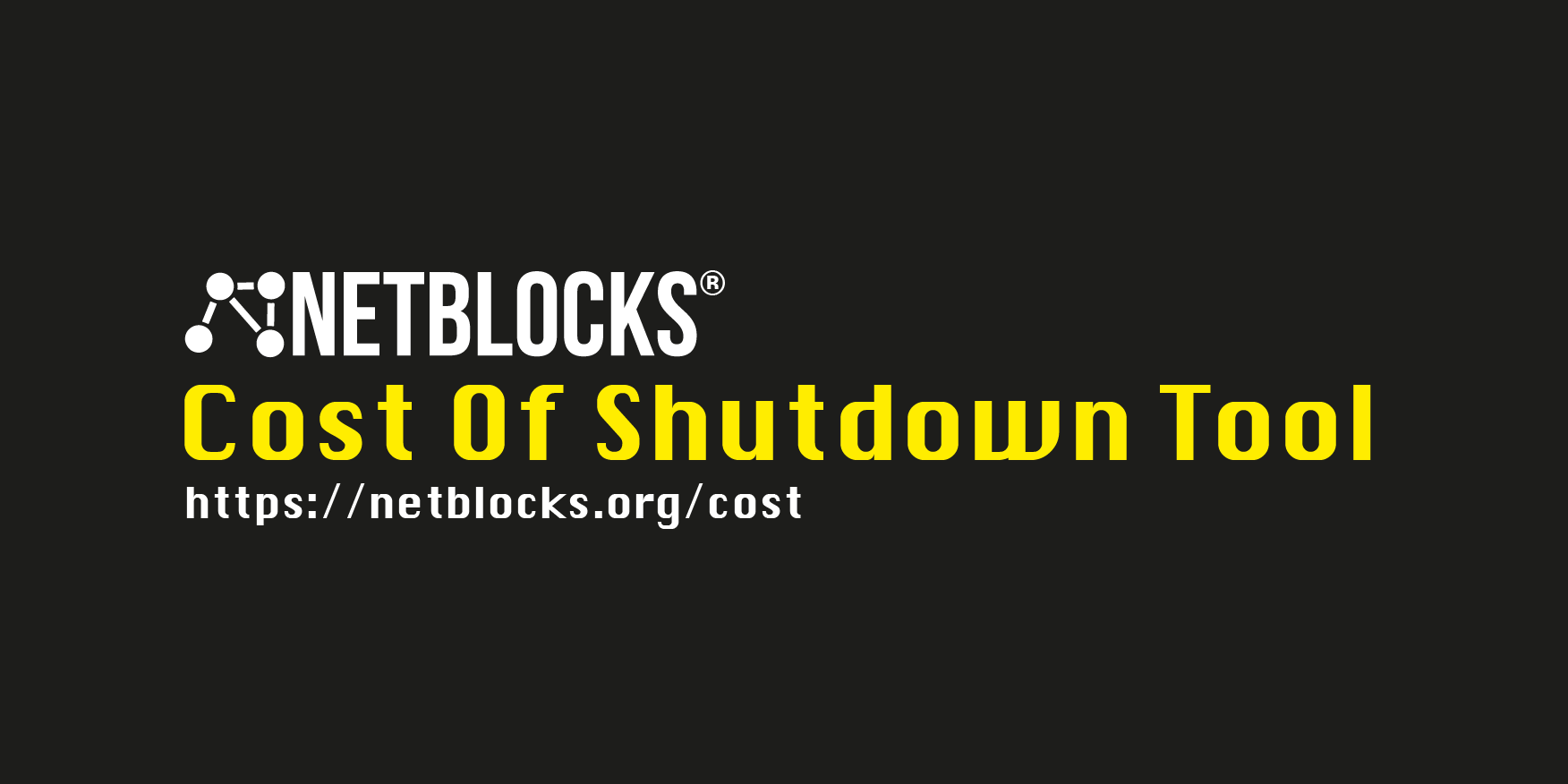
“ We believe the opportunities brought by the Internet should be available for everyone and a tool such as COST can help governments understand the economic impact of shutting down or blocking the Internet. While we can’t quantify the human cost of switching off the Internet, this helps quantify the economic cost,” explains Constance Bommelaer de Leusse, Senior Director Global Internet Policy for The Internet Society.
The COST tool is built upon established research papers published by the Brookings Institution for global coverage and a specialised model by CIPESA for sub-Saharan Africa, taking into account indirect economic factors and informal economies that play a major role in the region. Economic indicators are integrated from open data sources including the World Bank, ITU and Eurostat.
You can read more about it here.

